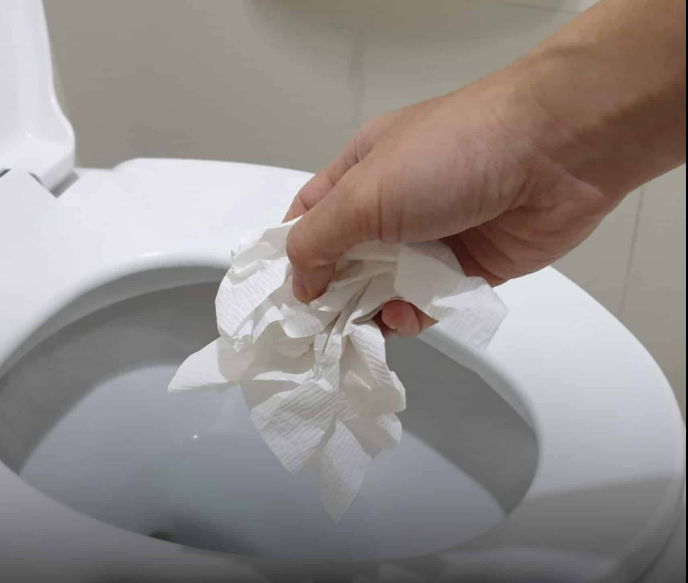When it comes to daily intimate hygiene, many women rely on a routine they believe is straightforward and harmless: wiping thoroughly with toilet paper after using the bathroom. However, recent expert insights reveal that this common habit might actually cause more harm than good. Excessive toilet paper use, especially after bowel movements, can lead to unexpected vulvar irritation, redness, and discomfort.
This extensive article delves into the reasons why over-wiping is problematic, explains the physiology behind the issue, shares expert advice from a pelvic floor physiotherapist, and provides practical strategies to adopt a gentler, more effective hygiene routine to maintain intimate health and comfort.
Table of Contents
- Introduction: Understanding Feminine Hygiene Habits
- The Hidden Risks of Excessive Toilet Paper Use
- Fecal Contamination: A Key Factor in Vulvar Irritation
- Expert Insight: Georgia Reupert-Allen and Pelvic Floor Health
- Why Limit Yourself to Three Wipes?
- The Role of the Pelvic Floor in Bowel Movements
- Targeted Pelvic Floor Exercises to Improve Hygiene
- Alternative and Gentler Wiping Techniques
- Daily Practices to Maintain Intimate Health
- Recommended Products and Tools for Gentle Hygiene
- When to Seek Medical Advice: Recognizing Warning Signs
- Psychological Impact of Chronic Vulvar Irritations
- Conclusion: Redefining Your Hygiene Routine for Lasting Comfort
1. Introduction: Understanding Feminine Hygiene Habits
Feminine hygiene is a daily ritual for women around the world. After using the toilet, wiping with toilet paper is often the automatic, unquestioned next step. Many believe that the more they wipe, the cleaner and fresher they will feel. This belief, however, is misleading.
The skin and mucous membranes of the vulva and perineum are particularly delicate and sensitive. Overdoing hygiene practices can disrupt the natural balance of the skin, leading to irritation or even infection. Understanding how to maintain hygiene without causing damage is crucial to long-term intimate health.
2. The Hidden Risks of Excessive Toilet Paper Use
While wiping is necessary to remove fecal residues and maintain cleanliness, excessive wiping has several downsides:
- Mechanical irritation: Repeated rubbing damages the delicate skin, causing redness, microabrasions, and inflammation.
- Chemical irritation: Some toilet papers contain additives such as fragrances, dyes, or bleaching agents that can irritate sensitive tissues.
- Increased dryness: Over-wiping removes natural oils and moisture, leading to dryness and vulnerability.
- Spread of bacteria: Ironically, wiping too many times can spread fecal bacteria rather than fully removing them, leading to infections.
Women experiencing frequent vulvar irritation often report a cycle of increased wiping to relieve discomfort, which paradoxically worsens the condition.
3. Fecal Contamination: A Key Factor in Vulvar Irritation
One of the less obvious but highly significant risks of over-wiping is fecal contamination. Feces contain a variety of bacteria, some of which are harmless, while others can cause urinary tract infections (UTIs), bacterial vaginosis, or even yeast infections if they come into contact with the vulvar area.
Excessive wiping, especially without proper technique, can inadvertently spread fecal bacteria over a wider surface area of the perineum and vulva. Instead of fully cleaning the area, multiple wipes may re-distribute bacteria, contributing to inflammation and infection.
4. Expert Insight: Georgia Reupert-Allen and Pelvic Floor Health
Georgia Reupert-Allen, an Australian physiotherapist specializing in pelvic floor rehabilitation, has highlighted a crucial link between pelvic floor muscle function and hygiene habits. According to her, many women feel the need to wipe excessively because their anal sphincter muscles have not fully completed their function of expelling waste.
When the pelvic floor muscles, especially those controlling the anal sphincter, are weak or not fully coordinated, bowel movements may be incomplete, leaving residual stool that causes the sensation of uncleanliness. This drives women to wipe repeatedly, exacerbating irritation and discomfort.
Reupert-Allen suggests that strengthening the pelvic floor can improve bowel emptying, reducing the need for excessive wiping and thus protecting the delicate vulvar skin.
5. Why Limit Yourself to Three Wipes?
Healthcare professionals commonly recommend limiting toilet paper wipes to no more than three times. This recommendation is based on several considerations:
- Minimizing skin trauma: Beyond three wipes, the risk of skin irritation and microtears increases significantly.
- Reducing bacterial spread: Limiting wiping reduces the likelihood of spreading fecal bacteria.
- Maintaining skin hydration: Excess wiping dries out the skin, making it prone to cracking and infections.
- Optimizing hygiene: Studies indicate that three wipes are sufficient for effective cleaning when done properly.
Adhering to this guideline can help maintain a balance between hygiene and skin health.
6. The Role of the Pelvic Floor in Bowel Movements
The pelvic floor is a complex group of muscles supporting the pelvic organs, including the bladder, uterus, and rectum. It plays a vital role in controlling continence and enabling effective bowel movements.
When these muscles contract properly, the anal sphincter closes tightly, and during defecation, coordinated relaxation allows complete emptying. Weakness or dysfunction in the pelvic floor can lead to incomplete evacuation, causing leftover stool to linger and increase wiping needs.
Regularly exercising the pelvic floor muscles improves sphincter control and can lead to better bowel habits and less irritation.
7. Targeted Pelvic Floor Exercises to Improve Hygiene
To support pelvic health and reduce excessive wiping, incorporating simple pelvic floor exercises can be highly effective. Some recommended exercises include:
- Kegel exercises: Contracting and holding the pelvic floor muscles for several seconds, then relaxing. Aim for 10 repetitions, three times a day.
- Quick flicks: Rapid contractions and releases of the pelvic floor to increase muscle responsiveness.
- Biofeedback training: Under professional guidance, this uses sensors to provide feedback on muscle activity, helping refine control.
Performing these exercises shortly after a bowel movement can enhance muscle tone and improve evacuation, reducing the sensation of residual stool.
8. Alternative and Gentler Wiping Techniques
In addition to exercising the pelvic floor, modifying wiping techniques can help protect vulvar skin and reduce irritation:
Click page 2 for more




